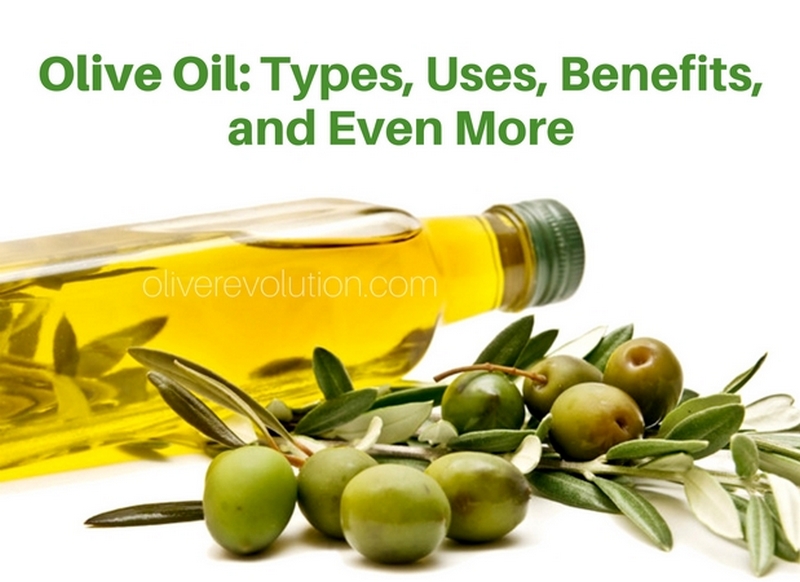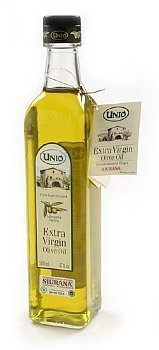
Since ancient times, olive oil is considered one of the most useful vegetable oils in the world, it is a “natural medicine”, a gift of the gods. Is it really so? Residents of countries that produce this magical product use olive oil every day in their diet to preserve health and beauty.
Olive oil benefits
Beneficial properties of olive oil are determined by the constituent substances. The product is mainly composed of unsaturated fats (oleic fatty acid). When you use vegetable oil instead of animal fats in a daily diet, the level of bad cholesterol in the blood is significantly reduced. According to Canadian Health&Care Mall, its moderate use serves as a preventive maintenance of diabetes, adiposity, cardiovascular diseases.
- Vitamin E, included in its composition is a highly active antioxidant, which helps the body to combat aging skin, improves hair growth and nails, and prevents the development of cancer;
- Vitamin A, K, D in combination with vitamin E strengthen tissues, intestinal muscles, bone system. Therefore, it is very useful for children;
- Phenols, which are present in the oil, strengthen the immune system and slow the aging process;
- Linoleic acid has a very positive effect on eyesight, improves coordination, tissue regeneration, rapid healing of wounds and burns;
- Oleic acid can stimulate a gene that inhibits the active growth of cancer cells, which reduces the risk of cancer;
- Organic olive oil is very good, almost 100%, absorbed by the human body.
Extra virgin olive oil is very useful for the digestive system – it has a mild laxative effect, which allows many people to fight constipation and hemorrhoids. Also, it has a positive effect on the stomach and cures duodenal ulcers. Pure olive oil is perfect for weight loss, it helps to accelerate metabolism and reduces appetite.
One dessertspoon of virgin olive oil, taken in the morning on an empty stomach, helps to cure gastritis or stomach ulcers, as part of complex therapy.
Olive oil has a weak choleretic effect. It normalizes blood pressure in hypertensive patients, so many remedies for pressure are produced from olive leaves. In folk medicine, olive oil is used for back pain and applied to painful areas.
The benefits of olive oil for pregnant women and children are undeniable. During pregnancy, fatty acids are very necessary for the healthy growth of the fetus, its nervous and bony system, the baby’s brain. In addition, fatty acids of olive oil are similar to those of mother’s milk (8% of linoleic acid). One of the causes of various skin diseases in children is a deficiency of linoleic acid in the body – the intake of olive oil can make up for it.
Also, organic olive oil is very useful for the skin – it does not cause allergic reactions, it is easily absorbed, but does not clog pores, has a rejuvenating effect due to vitamin E, very suitable for dry, inflamed skin, helps to fight stretch marks and cellulite, relieves pain after excessive physical activity, favorably affects the hair, gives them shine, prevents loss and formation of dandruff, normalizes the condition of brittle and thin nails. However, for cosmetic purposes, you should use natural and pure olive oil.
The quality of olive oil depends on its type and production method
The way of industrial production determines the features and quality of the product:
- The first cold pressing – Extra virgin olive oil. This oil is made from fresh olives without using chemicals and heat treatment, so all its medicinal properties are preserved. This product cannot be cheap, it is the most expensive way of obtaining the product and the main indicator of its quality is that the content of fatty acids does not exceed 1%;
- Second cold pressing – Virgin olive oil. This oil is obtained with the second cold pressing, also without chemicals, it is much inferior in quality, aroma, useful properties to the product of the first pressing;
- Chemical extraction – Olive oil, Pure olive oil, Pomace oil. These types are obtained from a substrate by using hexane, gasoline and other chemical solvents, under the influence of heat treatment. This oil serves for the production of mayonnaise and sauces. To add value, producers add a small percentage of the first and second pressing oils, however, this has almost no effect on taste and healing properties. Pure olive oil is a non-natural oil with chemicals (gasoline, caustic soda, etc.). It has no useful properties and is much cheaper. Pomace oil is also a chemical extraction, it is used only in technical purposes, for the production of soap, cosmetics, creams, hair balms, lamp lighting, etc.
How to choose the best olive oil?
Unrefined olive oil is a product of healthy nutrition, which positively affects the gastrointestinal tract and prevents cardiovascular diseases and even oncology. However, due to a high olive oil price, it remains affordable not for every customer, and there is an opinion that you should buy traditional sunflower oil than cheap low-quality and not useful olive.
Do not buy refined olive oil for dressing salads
Refining is the process of whitening, neutralizing and deodorizing. After this cleaning, olive oil loses its useful properties, there is no smell, no color, no taste, no benefit. But you should fry foods on refined oil.
What is the best oil: Spanish, Greek, or Italian?
There are over 700 varieties of olives growing from Australia to America, the flavor, color and taste of which is affected by the nature of the soil, dryness, sun, stone, privacy, silence, climatic conditions. Greek olives and butter have the strongest taste.
World leaders producing olive oil:
-
 Spain – 540 000 t / year, but offers only 20% of the first cold pressed oil;
Spain – 540 000 t / year, but offers only 20% of the first cold pressed oil; - Italy – 420,000 tons / year;
- Greece – 280 000 t / year, offers 80% Extra Virgin oil with optimal price and best quality;
- Tunisia – 180,000 tons / year;
- Turkey and Syria – 90 000 tons / year;
- Morocco and Portugal – 50 000 t / year;
- Algeria – 20 000 tons / year;
- Libya – 10 000 tons / year.
If you still use frying oil, you’d better buy Italian refined varieties, because foods acquire a specific taste and aroma. For salads, you’d better use Greek unrefined Extra Virgin Olive oil.
Tips on how to store and how to choose good olive oil
- Black ripe olives give it a yellowish color, and immature – a yellow-green one, the smell should be pleasant, herbaceous-fruity, moderately thick, with a slight sediment. If the oil is not uniform, it is a low-quality mixture;
- If you try the product and hold it in your mouth, you should feel the olive taste, piquancy, bitterness, fruit taste. If you feel mustiness, a wooden taste or rancidity, it’s not the best olive oil, but a poor quality product;
- The label of natural olive oil of the first cold pressing should contain 2 signatures: “Naturel” and “100% olive oil“;
- Do not buy olive oil in big quantities, the oil is very quickly oxidized, you should buy it more often, and store in a well-clogged dark glass bottle at + 12C, in a dry dark place;
- If the labels say “without cholesterol“, this is a marketing ploy, olive oil does not contain any cholesterol;
- Check the quality in the following way: put the bottle in the refrigerator, the contents should be clouded. At room temperature, it’s transparent golden yellow.
